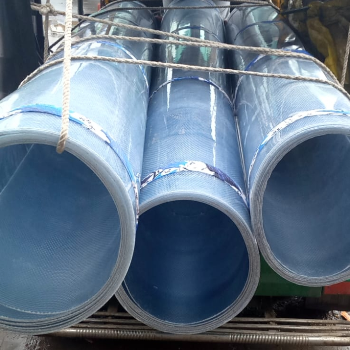In the bustling industrial zones of Mumbai, where the relentless hum of machinery blends with the ever-busy workforce, Raghav Kumar, a factory owner of a mid-sized automotive parts manufacturing unit, faced a persistent issue. Despite employing the best quality control measures, the factory's infrastructure seemed to be under constant attack from wear and tear, leading to frequent repairs and unexpected downtimes. This was not just a practical problem but also an emotional drain for Raghav, who took pride in running a smooth and efficient operation. The repetitive cycle of maintenance was starting to weigh heavily on his mind and his budget.
One day, at a local trade show, Raghav stumbled upon an innovative solution the 15 mm FRP (Fiber Reinforced Plastic) sheet. Intrigued by its promises of durability and resilience, he decided to explore how it could solve his factory's infrastructure issues. FRP sheets, known for their high strength-to-weight ratio, corrosion resistance, and ease of installation, seemed like the perfect answer to Raghav's woes.
The major distinct problem faced by Raghav and many other industrialists like him boils down to one key issue infrastructure durability. In the demanding environments of manufacturing plants, traditional materials often succumb to the harsh conditions, leading to frequent repairs, safety hazards, and increased costs. This is where FRP sheets, especially the robust 15 mm variant, offer a transformative solution.
FRP sheets are designed to withstand the rigors of industrial environments. Their superior resistance to chemicals, moisture, and impact ensures that they last longer than conventional materials. For Raghav, this meant fewer interruptions in his production line and a significant reduction in maintenance expenses. Moreover, the lightweight nature of FRP sheets made installation a breeze, minimizing downtime during the transition.
But the story doesn't end with practical benefits alone. The emotional impact of this change was profound. By adopting FRP sheets, Raghav not only secured his factory's infrastructure but also restored his peace of mind. He could now focus on what truly mattered—innovation and growth—without the constant worry of structural failures looming over his head.
Raghav's experience is not an isolated one. Across India, businesses are increasingly turning to FRP solutions to address their infrastructure challenges. Take, for instance, the case of Meera Industries in Chennai, a textile manufacturing unit that faced similar issues of corrosion and damage due to constant exposure to dyes and chemicals. Upon switching to FRP sheets, Meera Industries reported a 30% decrease in maintenance costs and a notable improvement in worker safety, thanks to the sheets' slip-resistant surface.
The benefits of FRP sheets extend beyond individual factories. On a larger scale, they contribute to the sustainability goals of the industry. By reducing the need for frequent replacements and repairs, these sheets help in conserving resources and reducing waste, aligning with the global push towards eco-friendly industrial practices.
For industrialists like Raghav and many others, FRP sheets are more than just a building material; they are a gateway to a more efficient, reliable, and sustainable future. As businesses strive to optimize operations and enhance safety, the integration of durable materials like the 15 mm FRP sheet becomes an essential strategy.
In conclusion, the journey of Raghav Kumar illustrates the transformative power of innovative materials in solving long-standing industrial challenges. By embracing FRP sheets, businesses can not only improve their infrastructure's durability but also foster an environment of safety and efficiency. For anyone facing the relentless challenges of industrial wear and tear, the 15 mm FRP sheet stands as a beacon of hope, promising a future where maintenance woes are a thing of the past and business growth knows no bounds.
Visit Vyaparify Site:
https://id.vyaparify.com/d-dropsLocation:
https://maps.app.goo.gl/4H3QjmbawE11CYdL8 
